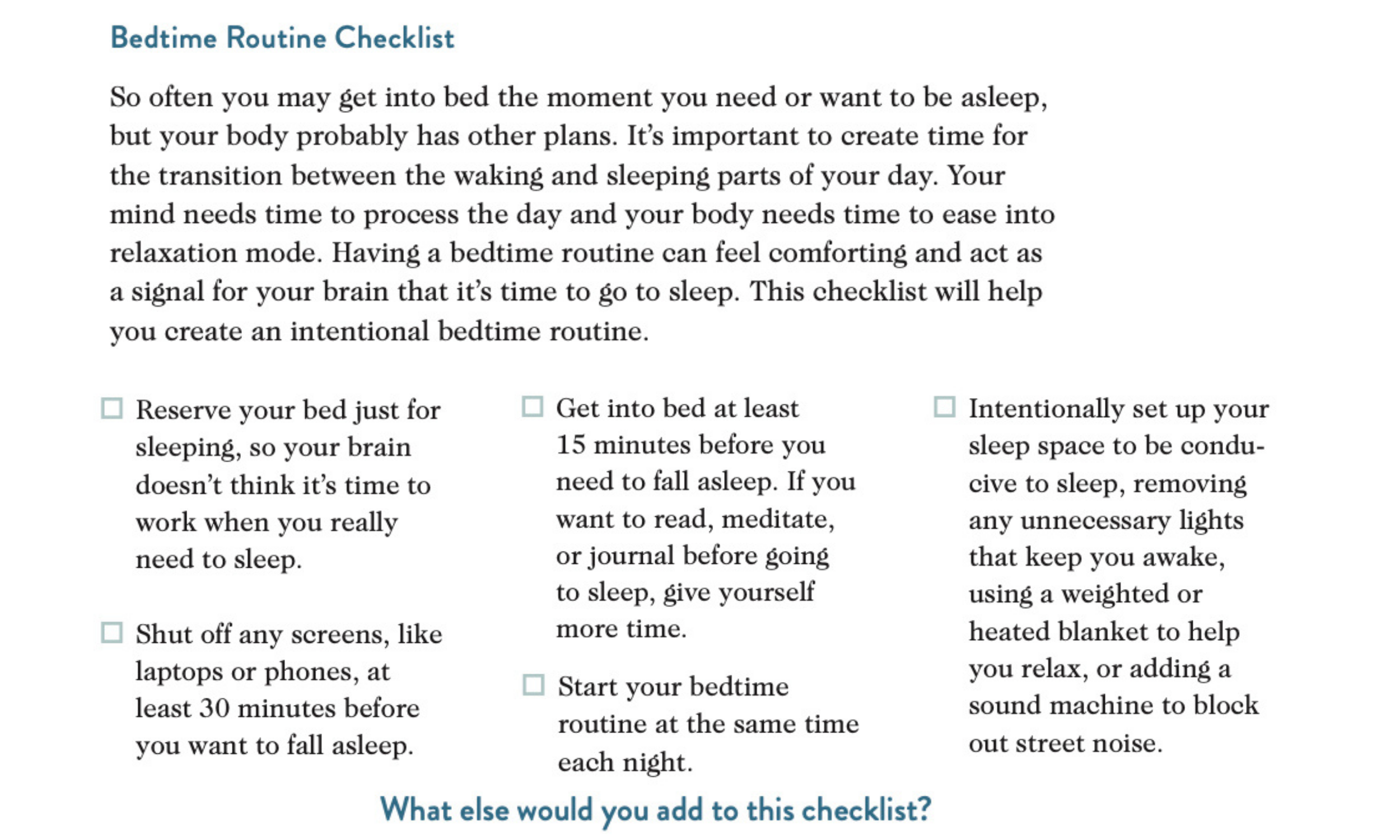2 Ways to Get Better Sleep with Mindfulness
Under times of stress you need sleep the most, but ironically this is usually when people struggle with this basic necessity the most. Either not:
being able to fall asleep
stay asleep
getting too much sleep
not having enough time to dedicate to sleep can all create difficulties during times of stress
When feeling depressed, you could be getting too much sleep and feeling lethargic. On the other hand, if you’re experiencing a sleep deficit, you may not be able to get to sleep at all due to insomnia or wake in the middle of the night because:
your mind is racing with anxious thoughts
you’re suffer from chronic pain
are having stress dreams
you have someone to care for such as a new baby or an elderly family member.
When I had shingles at age 32 during a particularly stressful period of my life, I had to take over-the-counter pain medication every three hours just to feel comfortable. This made it incredibly difficult to get enough rest, leaving me feeling irritable and even more tired throughout the day. There are so many stress-related circumstances that may impact your sleep.
The Health Effects of Sleep Loss
Sleep deficiencies can impact your mood, causing increases in anxiety, depression and irritability. You may also notice decreased energy levels and memory issues such as forgetting things or having difficulty concentrating.
Not getting enough sleep can weaken your immune system making you more susceptible to catching colds and increase your risk for many health issues such as certain cancers, type 2 diabetes, and high blood pressure, according to Patrick Finan, Ph.D., a sleep researcher at Johns Hopkins. Needless to say sleep is pretty essential and unfortunately it’s usually the first thing to go when you’re under a lot of stress. (Sleep Deprivation, n.d.)
Even if you weren’t aware of the far-reaching impact sleep deficiencies can have, you’ve probably experienced the frustration of not getting enough sleep first hand. Paying attention to your sleep is an act of mindfulness and can give you important clues into your overall well-being. If you’re not sleeping enough or sleeping too much and waking up feeling lethargic, there’s your cue to pay closer attention to what’s going on around you.
Is your busy lifestyle contributing to high stress levels or leaving little time for sleep?
Perhaps you’re drinking caffeine late in the day and didn’t realize the effects it’s having on your ability to fall asleep?
Could there be underlying health issues such as a thyroid condition that runs in your family that you’ve been meaning to get to the doctor about?
Maybe you’re a new Mom with postpartum depression that could use the support of a new mom’s group?
Whatever is happening in your world, take note of how it’s impacting your ability to get a good night’s sleep.
Mindfully Relax into Sleep
Trying to fall asleep can be so stressful. Often this is the only time of day where you are actually sitting quietly with your thoughts, not engaged with a screen or person calling for your attention. It’s no wonder a flood of unprocessed thoughts, experiences, sensations, and worries from the day come flooding in, making it impossible to get still and feel relaxed enough to drift off to sleep.
Your body is like a small child, patiently waiting to tell you all about their day, but at this point you’re too tired to listen. You can utilize mindfulness to improve your sleep in two ways. First, you can take those pauses throughout the day to listen to your body and reflect on your inner world of thoughts and feelings.
Secondly, you can incorporate mindfulness into your bedtime routine to allow your body to access a relaxation response. In this mindful state, you’ll be able to stay anchored in the present moment and let go of worries about your to-do list, stop focusing on the stress happening around you, and worry less about whether or not you’re getting enough sleep.
In the exercise below, you’ll start to create a relaxing bedtime routine that will support you to ease into bedtime and feel more relaxed as a result.

